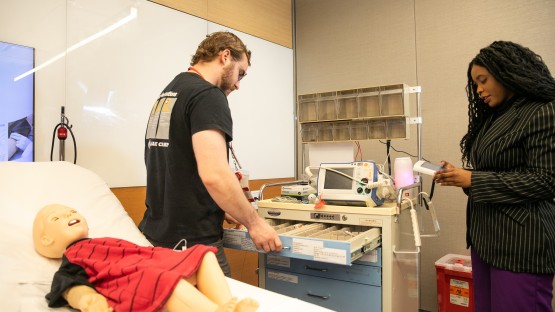
"Medical crash carts are essential tools in emergency rooms, but their inconsistent layouts can lead to confusion and delays during critical situations."
"A Cornell researchers' team designed a robotic crash cart to streamline emergency responses, ultimately reducing delays in high-stress medical environments."
Cornell researchers have innovated traditional crash carts used in emergency rooms by transforming them into robots to better assist medical teams. This forward-thinking design addresses the issue of inconsistent layouts across hospitals, which can slow down response times during emergencies. Their research, presented at the ACM/IEEE International Conference on Human-Robot Interaction, provides insights from a multi-year study focused on how robotic crash carts can improve team collaboration in critical, time-sensitive medical scenarios, emphasizing the need for consistency and efficiency in emergency care.
Read at Cornell Chronicle
Unable to calculate read time
Collection
[
|
...
]